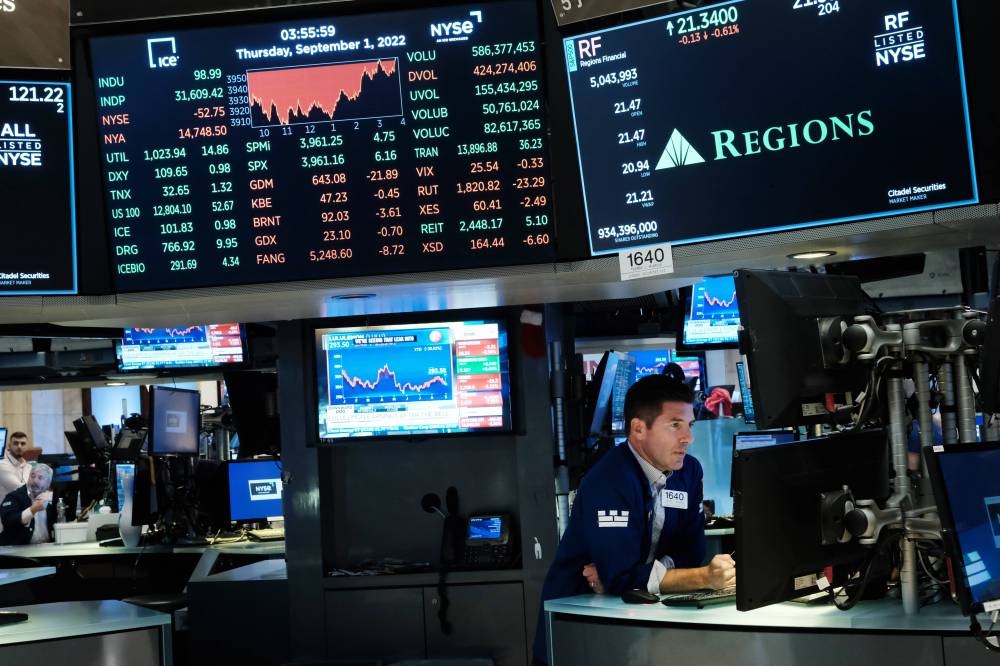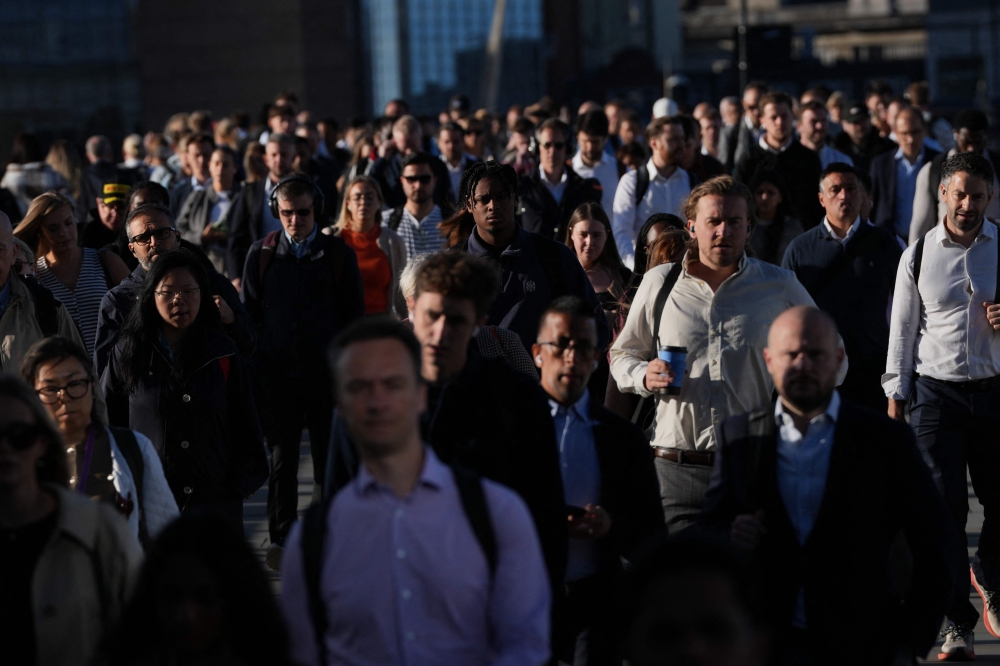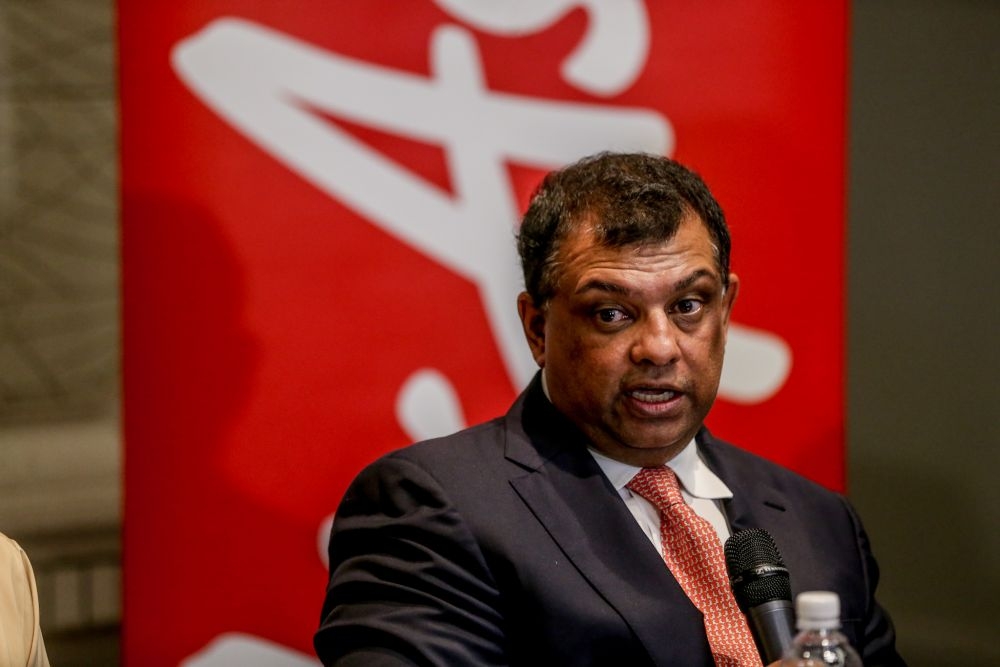NEW YORK, Oct 6 ― Wall Street stocks closed lower yesterday, unable to sustain a late-day surge, after data showing strong US labour demand again suggested the Federal Reserve will keep interest rates higher for longer.
Fed officials have insisted on aggressive rate tightening to battle inflation, a message the market has feared would lead to a hard landing and likely recession.
However, investors also sought bargains in a market that appears oversold. The forward price-to-earnings ratio is at 15.9, close to its historic mean, down from around 22 before the market's big slide this year.
“By battling back, to me that is a favourable indicator that this rally could have legs,” said Sam Stovall, chief investment strategist at CFRA Research in New York.
“It too confirms that investors believe, traders believe, that there's still more to go in this rally,” he said.
US private employers stepped up hiring in September, the ADP National Employment report on Wednesday showed, suggesting rising rates and tighter financial conditions have yet to curb labor demand as the Fed battles high inflation.
The Institute for Supply Management's services industry employment gauge shot up in another sign labour remains strong as the overall industry slowed modestly in September.
The Fed is expected to deliver a fourth straight 75-basis-point rate hike when policymakers meet Nov.ember 1-2, the pricing of fed fund futures shows, according to CME's FedWatch tool.
San Francisco Fed President Mary Daly told Bloomberg TV in an interview that inflation is problematic and that the US central bank would stay the course.
“The path is clear: we are going to raise rates to restrictive territory, then hold them there for a while,” she said. “We are committed to bringing inflation down, staying course until we are well and truly done.”
The benchmark S&P 500 index rose 5.7 per cent Monday and Tuesday as Treasury yields slid sharply on softer US economic data, the UK's turnaround on proposed tax cuts that had roiled markets and Australia's smaller-than-expected rate hike.
Treasury yields shot up again yesterday after the softer economic data failed to bolster budding hopes the Fed might pivot to a less hawkish policy stance.
Eight of the 11 major S&P 500 sectors fell, led by a 2.25 per cent decline in utilities and 1.9 per cent drop in real estate.
The energy sector led the market higher, up 2.06 per cent, after the Organization of the Petroleum Exporting Countries and allies agreed to cut oil production the deepest since the Covid-19 pandemic began, curbing supply in an already tight market.
The Dow Jones Industrial Average fell 42.45 points, or 0.14 per cent, to 30,273.87, the S&P 500 lost 7.65 points, or 0.20 per cent, to 3,783.28 and the Nasdaq Composite dropped 27.77 points, or 0.25 per cent, to 11,148.64.
Volume on US exchanges was 10.43 billion shares, compared with the 11.64 billion average for the full session over the past 20 trading days.
Twitter Inc lost momentum in line with its peers, a day after surging 22 per cent on billionaire Elon Musk's decision to proceed with his original US$44-billion (RM204 billion) bid to take the social media company private.
Twitter fell 1.35 per cent and Tesla Inc, the electric-car maker headed by Musk, also slid 3.46.
Declining issues outnumbered advancers on the NYSE by a 2.08-to-1 ratio; on Nasdaq, a 1.69-to-1 ratio favoured decliners.
The S&P 500 posted two new 52-week highs and nine new lows; the Nasdaq Composite recorded 49 new highs and 128 new lows. ― Reuters






















